
CRUSTACEANA
Scope & Guideline
Pioneering Research in Animal and Aquatic Sciences
Introduction
Aims and Scopes
- Taxonomy and Systematics:
The journal emphasizes contributions to the taxonomy and systematics of crustaceans, including the description of new species and revisions of existing taxa. - Ecology and Environmental Biology:
Research on the ecological roles and environmental interactions of crustaceans is a core focus, exploring aspects such as habitat preferences, reproductive strategies, and responses to environmental changes. - Morphology and Physiology:
Studies investigating the morphological and physiological adaptations of crustaceans, including reproductive biology and developmental processes, contribute significantly to the journal's scope. - Molecular and Genetic Studies:
The journal supports molecular and genetic research that elucidates evolutionary relationships, genetic diversity, and population structure within crustacean groups. - Conservation and Fisheries Biology:
Research addressing the conservation status, management, and sustainable use of crustacean species is increasingly relevant, especially in the face of environmental changes and overfishing.
Trending and Emerging
- Molecular Phylogenetics and Genomics:
There is a growing trend towards molecular phylogenetic studies and genomic analyses that enhance the understanding of evolutionary relationships among crustaceans. - Conservation Genetics:
Research focusing on conservation genetics is on the rise, reflecting a heightened awareness of the need to address biodiversity loss and the sustainability of crustacean populations. - Functional Morphology and Physiology:
Emerging studies are increasingly investigating the functional aspects of morphology and physiology, linking structure to ecological and behavioral adaptations. - Impact of Climate Change:
Research examining the impact of climate change on crustacean species and ecosystems has gained traction, emphasizing the importance of understanding resilience and adaptability in changing environments. - Aquaculture and Fisheries Management:
There is a notable increase in publications related to aquaculture practices and fisheries management, highlighting the economic significance and conservation of crustacean species.
Declining or Waning
- General Ecology without Specific Taxa:
There has been a noticeable decrease in publications that discuss general ecological principles without focusing on specific crustacean taxa, as researchers increasingly target specific species or groups. - Traditional Morphological Studies:
Research purely based on traditional morphological assessments has seen a decline, likely due to the increasing integration of molecular techniques that provide more comprehensive insights into crustacean biology. - Broad Environmental Impact Studies:
Studies focusing on broad environmental impacts on crustaceans without detailed case studies or specific taxa are less common, as the journal moves towards more targeted ecological research.
Similar Journals
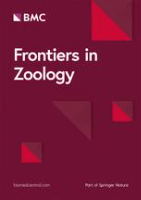
Frontiers in Zoology
Pioneering discoveries in animal behavior and systematics.Frontiers in Zoology is a premier, open-access journal published by BMC that has been a cornerstone of zoological research since its inception in 2004. With a commitment to advancing the field, this journal covers a broad spectrum of topics within Animal Science and Zoology, as well as Ecology, Evolution, Behavior, and Systematics. Recognized for its quality, it holds a distinguished Q1 ranking in both of these categories and ranks within the top percentiles in Scopus, with 87th and 78th percentiles, respectively. Based in the United Kingdom, it provides researchers, professionals, and students with innovative studies and findings that encourage interdisciplinary collaboration and exploration. The journal is dedicated to facilitating the open exchange of scientific knowledge, making it an essential resource for those seeking to stay at the forefront of zoological and ecological sciences.

Journal of Ichthyology
Connecting Researchers to the Aquatic WorldJournal of Ichthyology, published by PLEIADES PUBLISHING INC, is a respected periodical in the field of aquatic sciences and biological studies, focusing extensively on the study of fish and their ecosystems. With an ISSN of 0032-9452 and E-ISSN of 1555-6425, this journal serves as an essential platform for researchers seeking to publish innovative findings related to ichthyology and broader aquatic biological sciences. Although currently not an open-access journal, its high relevance is reflected in its impact factor and varied audience, addressing pressing issues in biodiversity, conservation efforts, and fish biology. The journal's classification indicates a Q3 ranking in Agricultural and Biological Sciences and a Q4 ranking in Aquatic Science for 2023, affirming its contributions to the field despite its percentile standings in Scopus ranking. The journal has a publication history that spans critical converged years from 1976 to 2024, making it a vital resource for ongoing research developments and scholarly discourse. For academics, professionals, and students alike, the Journal of Ichthyology remains a key resource for advancing knowledge and enhancing the understanding of fish biology and their ecological impacts.
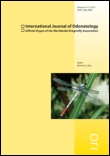
INTERNATIONAL JOURNAL OF ODONATOLOGY
Innovating Insights into Odonatology and BeyondINTERNATIONAL JOURNAL OF ODONATOLOGY, published by Wachholtz Verlag GmbH, is a vital resource for researchers and professionals in the fields of Ecology, Evolution, Behavior, and Insect Science. Established in 1998, this journal provides a platform for the dissemination of innovative research pertaining to odonatology, encompassing the ecological and biological interactions of dragonflies and damselflies. With its focus on advancing knowledge within these scientific disciplines, the journal holds a commendable Q3 ranking in Ecology, Evolution, Behavior and Systematics and a Q2 ranking in Insect Science for 2023, reflecting its significance in academic circles. Although it operates without open access, its articles are accessible through institutional subscriptions, allowing for wide dissemination among scholars and practitioners. The journal's commitment to publishing high-quality, peer-reviewed research makes it an authoritative source of information that enriches the study of odonates and their broader ecological contexts. For inquiries, the journal's editorial team can be reached at C/O Fleet7, Fleethorn 7, Kiel 24103, Germany.
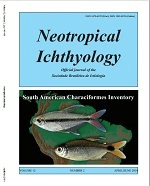
Neotropical Ichthyology
Illuminating aquatic ecosystems through rigorous research.Neotropical Ichthyology is a prestigious open-access journal published by the SOC BRASILEIRA ICTIOLOGIA, dedicated to advancing the field of ichthyology within the Neotropical region. Since its inception in 2003, the journal has provided a vital platform for researchers, professionals, and students to disseminate significant findings related to fish biology, ecology, and conservation. With an impact factor that is reflected in its impressive Q1 ranking in Animal Science and Zoology and Q2 rankings in both Aquatic Science and Ecology, Evolution, Behavior and Systematics, it stands as a leading resource for cutting-edge research. Located in Brazil, at the UNIV SAO PAULO, the journal not only contributes to scientific knowledge but also fosters collaboration among ichthyologists dedicated to the rich aquatic biodiversity of the Neotropical region, ensuring that critical insights into fish species, habitats, and conservation strategies are accessible to a global audience.

PAKISTAN JOURNAL OF ZOOLOGY
Championing the cause of conservation through academic excellence.Pakistan Journal of Zoology, established in 1975 and published by the Zoological Society of Pakistan, is a pivotal resource in the field of zoology and animal science, contributing to the academic discourse and research advancements in the region. With an ISSN of 0030-9923, this journal strives to disseminate innovative research findings and scholarly articles that explore various facets of animal biology, ecology, and conservation. Although classified in the Q4 quartile within the animal science category, its commitment to providing a platform for emerging researchers makes it crucial for those in the zoological community. The journal covers a broad range of topics relevant to contemporary issues in zoology, promoting both local and international collaborations. Situated in Lahore, Pakistan, its contributions are vital for promoting biodiversity awareness and conservation efforts within the region. Accessible research outputs empower students and professionals alike to engage in critical discussions and applications within the disciplines of zoology and animal science.

Botany
Innovating methodologies for a greener future.Botany is a premier academic journal published by Canadian Science Publishing, dedicated to advancing the understanding of plant sciences and ecological systems. With an ISSN of 1916-2790 and an E-ISSN of 1916-2804, this journal has established itself as a respected publication in the fields of Ecology, Evolution, Behavior and Systematics, and Plant Science, reflected in its 2023 Q2 and Q3 rankings. Covering a wide range of topics, Botany is committed to fostering interdisciplinary research, promoting innovative methodologies, and disseminating significant findings from both theoretical and applied perspectives. Based in Ottawa, Canada, the journal is open access, ensuring that high-quality research is accessible to a global audience, thereby playing a crucial role in the dissemination of knowledge in the scientific community. With convergence years from 2008 to 2024, it continues to evolve alongside the scientific advancements in botanical studies, making it an essential resource for researchers, professionals, and students alike.
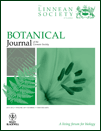
BOTANICAL JOURNAL OF THE LINNEAN SOCIETY
Unveiling the Complexity of Flora and Fauna InteractionsThe Botanical Journal of the Linnean Society, published by Oxford University Press, stands as a premier platform for interdisciplinary research within the realms of Ecology, Evolution, Behavior, and Plant Science. With a notable impact factor reflective of its esteemed reputation, this journal is classified in the Q1 quartile for both Ecology and Plant Science, placing it among the most influential publications in these fields. Since its inception in 1969, and with an anticipated convergence of research extending to 2024, it has become essential for scholars and professionals seeking to engage with cutting-edge studies, theoretical frameworks, and practical applications that drive our understanding of plant biology and ecological systems. The journal’s commitment to excellence is underscored by its robust Scopus rankings—achieving an impressive 83rd percentile in Ecology and a 82nd percentile in Plant Science. This makes the Botanical Journal of the Linnean Society a crucial resource for researchers, educators, and students alike, eager to advance their knowledge and contribute to the evolving discourse in botany and environmental studies.
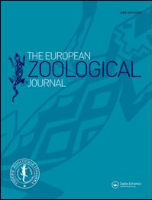
European Zoological Journal
Connecting Research and Conservation for a Sustainable FutureEuropean Zoological Journal, published by Taylor & Francis Ltd, is an esteemed open-access publication dedicated to advancing the exciting field of zoology. Since its inception in 2017, this journal has progressively established itself as a vital resource for researchers, professionals, and students alike. With its Q2 ranking in Animal Science and Zoology as of 2023, the journal ranks in the 69th percentile among its peers, showcasing its influence and contribution to the discipline. The journal’s broad scope covers a wide range of topics within zoology, aiming to foster an understanding of animal biology and conservation efforts. As an open-access journal, it not only enhances the dissemination of knowledge but also encourages collaborative research across global communities. Situated in the United Kingdom, the European Zoological Journal invites submissions that contribute to the evolving discourse in animal sciences, and endeavors to support the scientific community in addressing pressing ecological challenges.
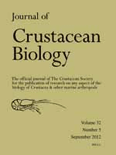
JOURNAL OF CRUSTACEAN BIOLOGY
Innovating Research in Crustacean EcologyJOURNAL OF CRUSTACEAN BIOLOGY, published by Oxford University Press, is a premier peer-reviewed journal dedicated to advancing the field of crustacean biology. With an ISSN of 0278-0372 and E-ISSN 1937-240X, this esteemed journal has been a critical platform for the dissemination of research since its inception in 1984, encompassing a diverse array of studies related to the biology, ecology, and conservation of crustaceans. As part of the Aquatic Science category, the journal ranks in the Q3 quartile, illustrating its increasing relevance and impact within the scientific community. Although it is not an open-access journal, the quality of content published here ensures that it is highly regarded among researchers, professionals, and students alike. With annual converged issues until 2024, the JOURNAL OF CRUSTACEAN BIOLOGY remains a vital resource for those interested in crustacean research and its implications for broader ecological studies.

ANIMAL BIOLOGY
Advancing Knowledge in Animal Science and EcologyANIMAL BIOLOGY is a distinguished journal published by BRILL, focusing on the dynamic fields of Animal Science and Zoology, as well as Ecology, Evolution, Behavior, and Systematics. With an ISSN of 1570-7555 and an E-ISSN of 1570-7563, this quarterly journal serves as a pivotal platform for researchers and professionals seeking to contribute to the understanding of animal biology across diverse ecological contexts. The journal is recognized with a 2023 Scopus ranking of #234 out of 490 in the Animal Science and Zoology category, placing it within the 52nd percentile, alongside a rank of #409 out of 721 in Ecology, marking a solid contribution to the field. Although it currently holds a Q3 quartile in both categories, its commitment to quality research and novel insights continues to bolster its significance within the academic community. The open access option coupled with its publication history from 2003 to 2024 ensures a wide dissemination of knowledge, drawing in a global audience of researchers, professionals, and students eager to explore the intricacies of animal biology. By promoting high-quality discussions and innovative studies, ANIMAL BIOLOGY plays an essential role in advancing the understanding of life sciences and the evolution of biodiversity.